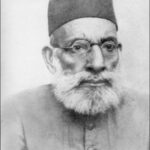Madan Mohan Malaviya: The Visionary Leader Who Transformed India’s Educational Landscape
Madan Mohan Malaviya, fondly known as “Mahamana,” was a towering figure in India’s struggle for independence and a remarkable educator whose contributions to the nation’s educational and social reforms are widely acknowledged. A man of exceptional intellect and deep nationalistic fervor, Malaviya’s efforts in building a modern India while preserving its rich cultural heritage continue to inspire generations. His life was marked by an unwavering commitment to education, social justice, and the upliftment of society.
Early Life and Background
Born on December 25, 1861, in Allahabad (now Prayagraj), Madan Mohan Malaviya came from a family with deep ties to education and social work. His father, Pandit Madan Mohan Malaviya, was a well-respected scholar, and his mother, Purn Devi, was a deeply spiritual woman who instilled in him the values of honesty, humility, and service to society. Malaviya was a brilliant student from a young age, excelling in both literature and law. He went on to graduate in law from Muir Central College in Allahabad, before stepping into public life as an educator, social reformer, and political leader.
Political Career and Contribution to India’s Freedom Struggle
Madan Mohan Malaviya’s political life was marked by his relentless commitment to securing India’s independence. He was one of the prominent leaders of the Indian National Congress and took part in several movements aimed at securing self-rule for India. Malaviya’s nationalism was deeply rooted in the belief that India’s strength lay in its traditional culture and heritage, and he sought a harmonious blend of Western education and Indian values.
In 1919, Malaviya was one of the leaders who protested against the British oppression in the aftermath of the Jallianwala Bagh massacre. His leadership in organizing national movements, including the Non-Cooperation Movement and the Quit India Movement, played a key role in rallying the Indian masses against British colonial rule.
The Founding of Banaras Hindu University (BHU)
One of the most significant contributions of Madan Mohan Malaviya to Indian society was his role in the establishment of Banaras Hindu University (BHU) in 1916. BHU, located in Varanasi (Varanasi), was envisioned as a center for advanced learning in both traditional and modern subjects. It was one of the first universities in India to integrate Western science and technology with India’s ancient cultural knowledge. Malaviya’s dream was to create a space where students could receive a well-rounded education that prepared them for leadership in a newly independent India.
Today, BHU stands as a testament to his vision, continuing to provide quality education and serve as a symbol of intellectual excellence.
Social Reforms and Contributions to Society
Madan Mohan Malaviya was not only a political leader but also a strong advocate of social reform. He believed that education was the key to eradicating social inequalities and uplifting marginalized communities. He was deeply concerned with the condition of women and fought for their education and empowerment. Malaviya’s efforts toward eradicating untouchability and fostering social equality were rooted in his desire to create a just society where all individuals, regardless of caste or background, could thrive.
He also worked tirelessly to bridge the gap between different communities in India, promoting Hindu unity and working for the welfare of the poor and downtrodden. His commitment to social justice was evident in his leadership in the Hindu Mahasabha, where he advocated for the rights of Hindus while promoting religious tolerance and national unity.
The Significance of His Legacy
Madan Mohan Malaviya’s legacy in India is undeniable. His commitment to higher education, social justice, and political freedom shaped the destiny of modern India. The foundation he laid for BHU, which continues to grow as a center of excellence, remains his most enduring contribution. His educational philosophy, which balanced tradition with modernity, was revolutionary for its time.
Beyond education, Malaviya’s influence extended to shaping India’s political and social ideologies. His ideals on social equality, women’s empowerment, and interfaith harmony continue to inspire reformers and social leaders today.
Facts About Madan Mohan Malaviya
- Founder of Banaras Hindu University (BHU): Malaviya’s vision led to the establishment of one of the largest residential universities in Asia, BHU, in 1916.
- Key Political Leader: He was an important figure in the Indian National Congress and served as its president on several occasions, leading the country toward independence.
- Social Reformer: He championed the causes of women’s education, untouchability abolition, and the upliftment of the backward classes in society.
- Journalism Pioneer: Malaviya was an influential journalist who used his publications to promote nationalist ideas and raise awareness about social and political issues.
- Advocate for Hindu Unity: As a leader of the Hindu Mahasabha, Malaviya worked to unite Hindus and promote cultural pride, while also advocating for religious tolerance.
FAQs
1. What were Madan Mohan Malaviya’s key contributions?
Madan Mohan Malaviya’s contributions include founding Banaras Hindu University (BHU), his pivotal role in the Indian freedom movement, his advocacy for social reforms, and his promotion of women’s education.
2. Why is Madan Mohan Malaviya considered a visionary?
Malaviya was a visionary because of his forward-thinking ideas, such as founding BHU, which blended modern education with Indian traditions, and his efforts to make education accessible to all sections of society.
3. How did Malaviya contribute to India’s independence?
Malaviya was an active leader in the Indian National Congress, contributing to several important movements like the Non-Cooperation Movement and Quit India Movement, which played a significant role in India’s fight for freedom.
4. What is the significance of Banaras Hindu University (BHU)?
BHU, founded by Madan Mohan Malaviya, is a prestigious educational institution that remains a symbol of excellence and contributes significantly to India’s academic and research advancements.
Visionary Leadership Transformed India
This biography of Madan Mohan Malaviya highlights his far-reaching impact on India’s education system, freedom struggle, and society at large. His life and work continue to shape the modern narrative of India’s intellectual, cultural, and political evolution.










